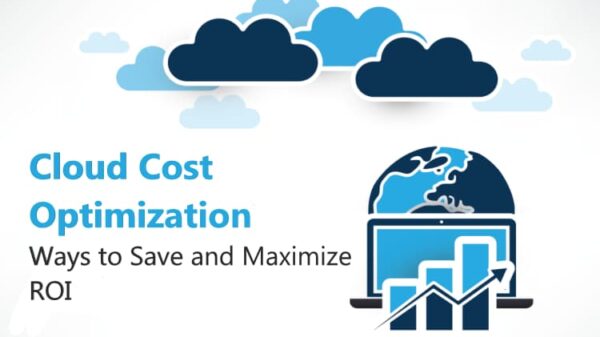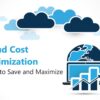Cloud computing databases have been around for some time now, but few companies have jumped to transform their existing database hosting infrastructures.
Every cloud computing database used to have its complications, which further prevented many individuals and companies from taking the plunge and diving into cloud computing technologies.
However, cloud computing technologies have come a long way since their debut and are currently one of the leading database solutions on the market. Companies are rapidly introducing cloud computing databases, so it might be an excellent time to see what the upgraded versions are all about and how you can benefit from them.
If you’re interested in investing in a cloud computing database, this article will inform you about all the pros and cons. Then, if you choose to go with cloud computing, you can also learn how to manage cloud databases for easy access and maintenance.
About cloud computing databases
A cloud computing database is a unique database that runs on a cloud platform and allows access only in a cloud environment. Cloud computing databases share many benefits and critical functions with their traditional counterparts. However, they come with unique features, too.
The main difference between cloud computing and traditional databases is that the cloud computing platforms come with additional flexibility provided by cloud computing. That eliminates the need for extra software and hardware investments that store all the data. Furthermore, users can access the cloud database anytime and anywhere, regardless of the device.
The pros of cloud computing databases
As you can probably tell, cloud computing databases come with numerous benefits traditional databases could never offer to their users. Let’s check out all the pros of switching to a cloud computing database.
Increased flexibility
One of the main advantages of cloud databases is the impressive cloud computing flexibility available to the users. Namely, companies choosing cloud database solutions experience fewer demands and restrictions than when managing their database services.
That allows them to complete daily activities more quickly and efficiently. With more flexibility on their hands and without inherent restrictions, businesses can expand, evolve, and grow.
Mobile access
With the development of powerful technology, mobile devices are rapidly becoming essential elements of modern offices. Since cloud databases are accessible remotely and from various devices, they pair perfectly with mobile tools. Companies can act on the latest events in real-time with remote access, positively affecting efficiency and productivity.
Reduced costs
Even if you already have an on-site server capability, moving to a cloud database can be cheaper than trying to expand your existing systems. Besides that, running and maintaining a cloud computing database comes with lower costs, so you can expect to save a lot of resources in the long run.
Simple recovery
The 24/7 uptime has other benefits besides allowing companies to track changes in real-time. Namely, modern databases are powered by reliable applications and stable connections that enable simple disaster recovery if something occurs on cloud infrastructures. While on-site servers offer recovery features, too, they take longer to fix and return to standard operations.
Enhanced safety and security
A long time ago, cybercriminals were taking advantage of every chance to gain profits, so moving sensitive and confidential data outside the company’s firewall meant high-risk business. Although cybercriminals are still hunting for sensitive data from companies, cloud databases offer robust security and world-class safety features.
The cons of cloud computing databases
Although cloud computing databases are among the best and most popular database systems, that doesn’t mean they’re perfect. Cloud databases still come with some weaknesses you have to consider before moving to a cloud system.
Changing service providers
If you choose a cloud service provider and want to change it sometime in the future, moving your infrastructure from one provider to a different one could become a complex and demanding task.
That’s why everyone interested in switching to cloud databases should carefully examine the cloud platforms these providers rely on, as they can determine how your company can operate in case you want to make changes in the future.
Cost fluctuations
Although moving to cloud databases is more cost-efficient than expanding your existing servers, the costs can quickly add up, especially if your database requirements and needs start to grow. Calculating the expected business growth might be a good step before deciding whether cloud databases offer you more affordable options.
System vulnerabilities
While cloud infrastructures and databases are among the most secure options on the market, cyber attacks still occur. They can significantly reduce the risks, but no system is entirely immune to cybercriminal activity. Therefore, storing sensitive information on cloud databases doesn’t protect it from data breaches.
Conclusion
Cloud computing databases have come a long way since they first appeared as an alternative to traditional on-site database systems. Although they still come with their disadvantages and security vulnerabilities, it’s safe to say the benefits of using a cloud computing database certainly outweigh the drawbacks.
If you’ve been contemplating moving to the cloud, now’s the time. Modern software tools offer plenty of additional services and solutions via the cloud.
Thanks for reading this article. If you're new here, why don't you subscribe for regular updates via RSS feed or via email. You can also subscribe by following @techsling on Twitter or becoming our fan on Facebook. Thanks for visiting!

























































































































































































